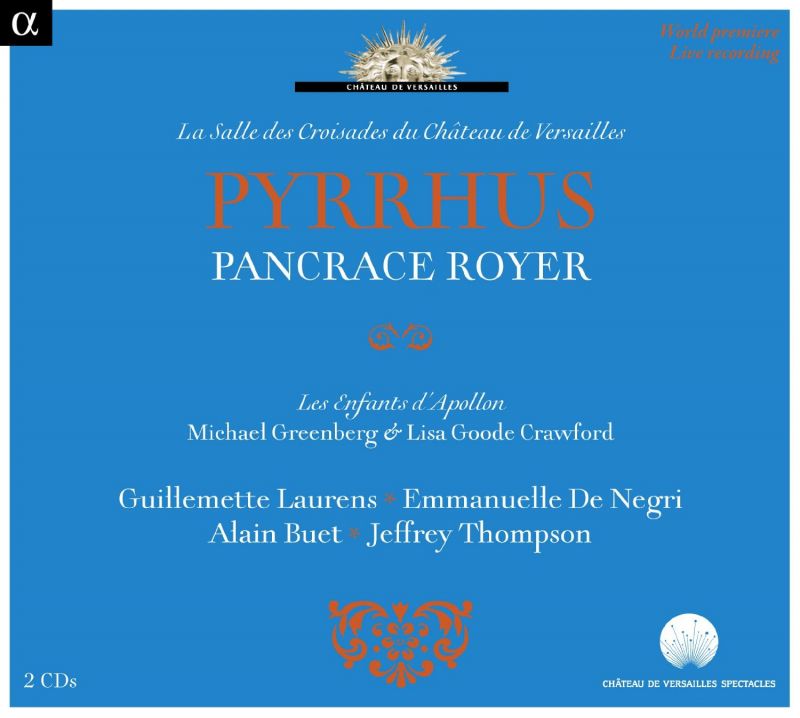ROYER Pyrrhus
View record and artist detailsRecord and Artist Details
Composer or Director: Joseph-Nicolas-Pancrace Royer
Genre:
Opera
Label: Alpha
Magazine Review Date: 07/2014
Media Format: CD or Download
Media Runtime: 141
Mastering:
DDD
Catalogue Number: ALPHA953

Tracks:
| Composition | Artist Credit |
|---|---|
| Pyrrhus |
Joseph-Nicolas-Pancrace Royer, Composer
Alain Buet Emmanuelle De Negri Guillemette Laurens Joseph-Nicolas-Pancrace Royer, Composer Les Enfants d’Apollon Lisa Goode-Crawford Michael Greenberg |
Author: David Vickers
In this performance the choir sopranos sing distractingly flat at times but the band play with soft assurance, and the oboes and bassoon are particularly poignant in the rondeau and menuets during the prologue for Mars and Minerva. The union of drama and music heats up when the jilted sorceress Eriphile and the forlorn Acamas forge their uneasy alliance during Act 2: flutes adorn Acamas’s futile expression of hope (‘Charmant espoir’), sung sweetly by Jeffrey Thompson. The conclusions to acts are the most memorable musical set-pieces: the closing sections of Act 3 present Eriphile’s bitter confrontation with Pyrrhus and climaxes with her summoning the Eumenides (the Deities of Vengeance) to wreak vengeance on her rival. At the end of the opera, Emmanuelle de Negri conveys tragic nobility in Polyxena’s inexorable suicide. Anyone hoping for something on a par with Rameau will be disappointed; but this accomplished performance reveals that Royer endeavoured to advance French tragic opera beyond its Lully esque roots.
Discover the world's largest classical music catalogue with Presto Music.

Gramophone Digital Club
- Digital Edition
- Digital Archive
- Reviews Database
- Full website access
From £8.75 / month
Subscribe
Gramophone Full Club
- Print Edition
- Digital Edition
- Digital Archive
- Reviews Database
- Full website access
From £11.00 / month
Subscribe
If you are a library, university or other organisation that would be interested in an institutional subscription to Gramophone please click here for further information.




